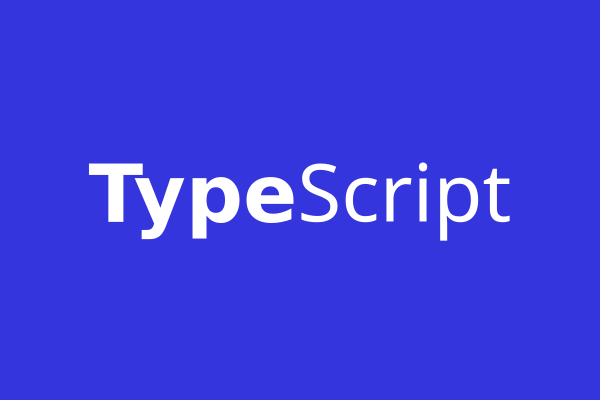The rise of artificial intelligence is transforming countless industries, and software development is no exception. While many fear that AI will take over jobs and bring about a dystopian future, Amjad Masad, CEO of Replit, sees it differently. He believes AI will make work more human, interactive, and versatile. He elaborated on this vision in an interview on Y Combinator’s YouTube channel, which serves as the primary source for this article.
Lowering the Barrier to Coding
Replit was founded in 2016 with the mission of making programming as accessible as possible. Initially, it functioned as a web-based tool to simplify the setup of development environments—particularly for beginners. Even in those early days, Masad had bold ambitions: he talked about creating a billion software developers, an idea that sounded far-fetched at the time.
However, breakthroughs in artificial intelligence—especially in natural language processing (NLP)—opened new doors. The release of GPT-2 in 2020 marked a turning point, prompting Replit to explore how AI agents could further automate the coding process. Early experiments in 2021 and 2022 didn’t yield major results, but by early 2024, the technology had matured significantly. The release of Claude 3.5 proved crucial, as it could generate coherent, functional code over longer sessions.
At a time when Replit was facing serious financial challenges, the company made a bold bet: it committed all its resources to developing Replit agents. It was an “all or nothing” moment, and the success of this strategy hinged on the timely arrival of Claude 3.5. Masad emphasized that a key limitation of AI agents was how long they could remain coherent. While earlier models could do so for only minutes, newer ones now maintain coherence for hours—some up to seven. This shift drastically accelerates software development, allowing agents to complete a week’s worth of human work in just hours.
Still, one major hurdle remains: seamless computer usage. According to Masad, agents currently struggle to navigate digital environments autonomously and still require human oversight—like “babysitting.” This is where companies such as Browserbase and Pig enter the picture, focusing on browser and desktop automation. Masad believes we are just weeks—or at most months—away from these technologies reaching reliable performance.
Innovation in Security and Parallel Development
Replit is continuously improving its agents, and version 3 is shaping up to be its most autonomous release yet. The company is placing particular emphasis on two areas: transactionality and parallel development. Transactionality enables agents to reverse errors—much like how Git allows developers to branch out and experiment safely. This increases both security and creative freedom.
Parallel development, on the other hand, is a groundbreaking approach where multiple agents work on the same task simultaneously, and the best result is selected. This method, already being used for smaller models, promises significant improvements in reliability and efficiency. Think of it this way: hiring ten junior engineers instead of one senior engineer for a task would be prohibitively expensive—but AI agents can run in parallel at low cost. In fact, up to a hundred agents can be deployed at once to ensure the most optimal outcome.
Who Uses Replit Agents?
Replit’s founding vision was to make programming easier and more widely accessible. Today, its user base spans virtually every demographic, with product managers among the most successful adopters. They’re able to create measurable business impact—such as running A/B tests or optimizing workflows—without involving engineering teams. This trend is also blurring the lines between traditional roles like product manager, designer, and engineer. At Replit, teams have already been formed where all three roles use AI to create prototypes—and in some cases, even entire products. This leads to dramatically faster results and eliminates communication issues typical of slower, waterfall-style development models.
Masad’s personal experience reinforces this shift: engineering time used to be the main bottleneck in startups, and the backlog of ideas was endless. Now, with Replit agents, tasks are completed rapidly, and the only constraint is the quantity and quality of ideas. However, this can also create internal tension, as product managers and executives can now prototype faster than traditional engineering teams.
Security Concerns and Platform Responsibility
Deploying AI-generated code into production raises valid security concerns. Large language models (LLMs) are prone to mistakes—especially in areas like authentication, where outdated methods are often used. So far, no major incidents have occurred, but Masad believes it’s only a matter of time. Platforms that enable non-developers to write code must take responsibility for security.
To address this, Replit provides a built-in authentication component that includes essential security features by default. In addition, the company has partnered with cybersecurity firm Samrippel to conduct code reviews before applications go live. This is similar to how developers don’t write their own payment or authentication systems, but instead rely on trusted, pre-built solutions.
Future Challenges: Trust and Tool Integration
Beyond security, several other challenges stand in the way of full automation. One of the biggest is a lack of human trust. Companies and individuals must adapt to the idea that AI can—and will—make mistakes, just as humans do. Additionally, scalability, performance optimization, and integration with existing systems remain key hurdles.
Replit occupies a unique position in the AI-assisted coding landscape. On one hand, it helps professional developers become more efficient; on the other, it empowers non-programmers to build applications. According to Masad, the latter market is significantly larger. Replit’s long-term goal is to become a universal problem-solving platform that can handle both personal and business-related challenges.
The user interface of software development may also undergo a transformation. While previous attempts at visual programming fell short, a new interface may emerge—one that blends natural language interaction with abstracted code logic. In this future, users might communicate with AI agents through speech or sketches, and the agents would turn those inputs into functioning applications.
Growth and Vision
Since the launch of Replit agents, the company has experienced rapid growth, achieving a compound monthly growth rate of 45%. Masad stresses that the focus isn’t on maximizing revenue, but on improving user satisfaction and product quality. He warns that fast growth can be misleading if users aren’t genuinely satisfied or are overpaying.
For investors, the AI sector still presents an unclear picture, but Masad expects distinct strategies and business models to crystallize over the next year. Replit works closely with leading foundation models such as Google Gemini and regularly evaluates new options to ensure the best user experience. The goal is for users to focus on solving problems, not choosing base models—Replit will handle that choice automatically.
Overall, Amjad Masad remains optimistic about AI’s future. He believes that AI won’t eliminate jobs but will transform them, making work more human, engaging, and rewarding. Replit’s mission is to democratize software development and help bring ideas to life faster than ever before.
Market Overview
The browser-based developer ecosystem has consolidated in recent years, and a few VC-backed platforms now dominate the space. These platforms offer integrated development environments (IDEs), managed runtimes, collaboration tools, and—since 2024—increasingly powerful AI agents capable of generating, testing, and deploying code. Replit currently leads in both revenue and developer adoption, but four other independent players remain relevant: Gitpod, CodeSandbox, StackBlitz, and Glitch.
Replit differentiates itself through deep AI integration and usage-based billing, which has significantly increased its average revenue per user. While other platforms also support AI, Replit currently leads in monetizing its agents effectively. Consumption-based pricing, aligned with actual compute usage, is becoming the industry standard.
One key differentiator among these platforms is enterprise-readiness. Gitpod, StackBlitz, and Replit all offer SOC-2 compliance, private deployments, and single sign-on (SSO), whereas CodeSandbox and Glitch focus more on grassroots and community-driven growth. Backend architecture also varies: Gitpod and CodeSandbox rely on containerized or micro-VM infrastructures, while StackBlitz runs WebContainers entirely in the browser, eliminating cold-start latency. Replit, in turn, offers container hosting, Edge Deploy, and a token-based marketplace for third-party infrastructure.
Notably, Glitch has announced it will discontinue free project hosting in July 2025, removing a longtime competitor from the professional tier. This creates a window of opportunity for Replit and CodeSandbox to attract displaced users with freemium models. As AI-based coding agents expand the market beyond traditional IDE users to anyone who wants to describe software in natural language, Replit currently holds the advantage in revenue, funding, and AI capabilities. However, future leadership will depend on continued innovation in enterprise features, model quality, and ecosystem integration.























